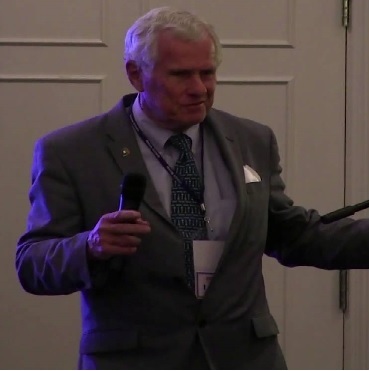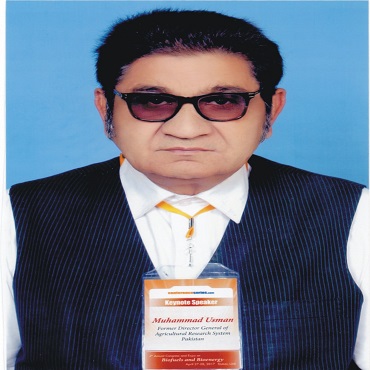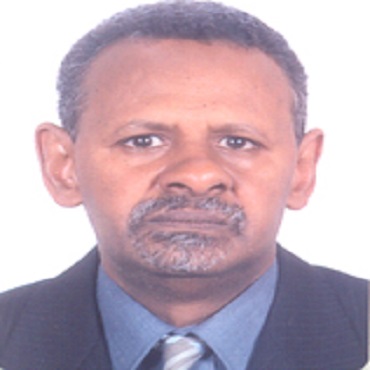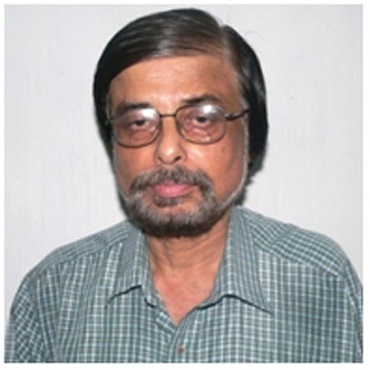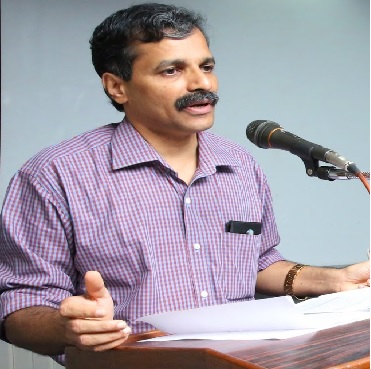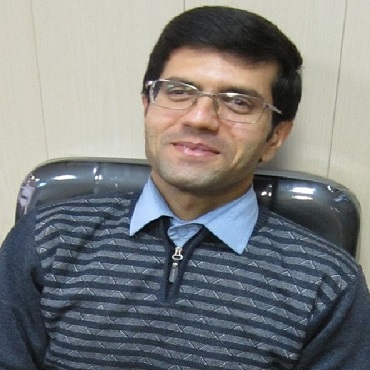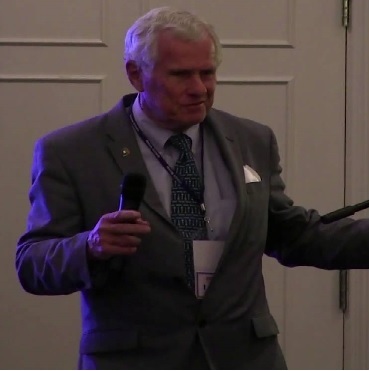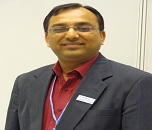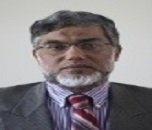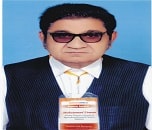
Recycling Expo-2018
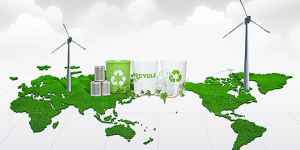
Theme: Sorting Out Waste: Valuing it as a resource
Meetings International is delighted to invite all the participants globally to attend “World Congress and Expo on Recycling” to be held during August 29-30, 2018 in Berlin, Germany. Recycling Congress gathers all the Global leaders in Recycling and relevant fields to share their research at this exclusive scientific program. Recycling congress is aimed to identify Advances in recycling which broadly covers Solid waste recycling, organic waste recycling, waste water recycling, agricultural waste recycling, sustainable production and consumption patterns, Life Cycle Analysis of Recycled Products, Environmental Issues of Recycling, Material flow analysis, Life cycle assessment and management of resources etc.
Recycling Congress is expecting members around the world and the two day conference will incite Plenary sessions, Keynote speeches, Poster and Oral presentations. This congress gives two days of vigorous discussions on recent advancements, new strategies and new techniques for development of new materials for global requirements. Berlin is the capital and the biggest city of Germany and in addition one of its 16 constituent states. With a populace of roughly 3.7 million, Berlin is the second most crowded city legitimate in the European Union and the seventh most crowded urban territory in the European Union. Situated in northeastern Germany on the banks of the streams Spree and Havel, it is the focal point of the Berlin-Brandenburg Metropolitan Region, which has around 6 million inhabitants from more than 180 countries.
The main theme of the Conference is " Sorting Out Waste: Valuing it as a resource" which covers a wide range of critically important sessions.
Recycling Congress 2018 Highlights are listed below:
World Congress and Expo on Recycling is the best platform where you can deliberate the novel methods for all the budding scientists and researchers to present their real-time work and share their views and aspects related to the theme of the conference .This congress had especially expressed with the different topics like
- Recycling
- Industrial waste recycling
- Chemical Waste Recovery
- Food & Agricultural Waste recycling
- Waste Management Techniques
- E-Waste Recycling and Management
- Thermal Waste Recovery
- Renewable energy
- Waste Management Techniques
- Biological Waste Management
- Construction Waste Management
- Processing of Recycled Materials
- Recycling of Hospital Wastes
- Life Cycle Analysis of Recycled Products
- Recycling Market
- Petroleum and Oil Waste Recycling
- Entrepreneurs Investment Meet: Recycling Expo-2018
Why You Should Attend Recycling Expo 2018:
Learn how to exploit the present market to maintain and develop your business from the leading specialists in the field of plastics recovery and its usage. This congress will give a forum to exchange recent research results among researchers from across the globe focused on learning and sharing expertise upon use of Recycling and for discussion of future challenges in implementation and application of current technologies and advances in this field. With members globally the world focused on learning about Recycling and waste management, this congress is best Opportunity to Meet World-renowned speakers and to learn and share the most recent techniques, theories and technologies in the field of Recycling and Waste management. It covers lot of topics and it will be a very good platform to show case recent researches on recycling and waste management and other interesting fields.
Target audience:
-
Recycling Industries
-
Waste management associations
-
Recycling associations
-
Ecologists
-
Recycling researchers
-
Business entrepreneurs
-
Environmental academia’s
-
Training institutes
-
Chemical engineers
-
Environmental Engineers
Session 1: Recycling
The previous methods have revealed that recycling is a possible and desirable way of reducing energy consumption in the manufacture of most building materials. There are several different types of recycling opportunity which have been described. The most immediate is the reutilization within the production process of waste material generated by the production process. Wastes of metal, glass and limestone may be returned to the process, thus reducing the energy requirement associated with these inputs. Timber off-cuts from sawmills are used in the manufacture of chipboard and particle board. Although this type of recycling is already quite widely used there are often opportunities to increase it.
Related Conferences & Societies:
2nd International Conference on Pollution Control and Sustainable Environment , UK; 3rd World Congress and Expo on Green Energy , Germany; World Conferences on Ecology, Germany; The International Exhibitions for Plastics Recycling Additives and Compounding Germany; Conferences on Plastics Recycling , USA, The recycling Association, UK; European Paper Recycling, UK; European Aluminium Association, UK; European wastewater treatment association, Germany; European Asphalt Pavement Association, Belgium; Textile Recycling Association, UK; Recycling Association of Minnesota, USA; Recycling Council of Alberta, Canada; National Recycling Coalition, Inc. (NRC), USA; Virginia Recycling Association, USA.
Session 2: Industrial Waste Recycling
Industrial waste materials must be discarded appropriately and securely, yet like a wide range of waste, reasonable waste arrangements are dependent upon financial aspects. There is little economic incentive to employ other answers for disposed of modern waste materials in addition to the typical straight transfer, which is frequently quite costly to begin with. Non- direct advances for risky waste administration now exist, but by and large, most businesses dealing with industrial materials don't offer regenerative waste answers for their items and packaging.
Related Conferences & Societies:
5th International Conference on Developments in Renewable Energy Technology , USA; Conferences on Building a Sustainable Bio based Economy, Ireland; Waste Expo USA; 5th World Convention on Recycling and Waste Management, Singapore; International Conference on Recycling and Waste Management UK, Washington Organic Recycling Council, USA; Illinois Recycling Association, USA; New Mexico Organics Recycling Organization, North America; Association of Ohio Recyclers, USA; Metal Recycling Association of India, India; Waste Management and Recycling Association of Singapore (WMRAS), Singapore; The Japan Containers and Packaging Recycling Association, Japan; Secondary Materials and Recycled Textiles (SMART), USA; Japan Organics Recycling Association, Japan; Japan Steel Can Recycling Association, Japan.
Session 3: Chemical Wastes Recovery
Chemical squander is a waste that is produced from toxic chemicals (mostly produced by large factories). Chemical squander may or may not be classed as hazardous waste. A chemical unsafe waste is a solid, liquid, or gaseous material that displays either a “Hazardous Characteristic” or is specifically “listed” by name as a hazardous waste. There are four characteristics chemical wastes may have to be considered as dangerous. These are Ignitability, Corrosivity, Reactivity, and Toxicity. This type of hazardous waste must be categorized as to its identity, constituents, and hazards so that it may be safely taken care and managed.
Related Conferences & Societies:
Integrated Resource Management Conference, USA; 31st Southeast Recycling Conference & Trade Show, USA; Road to Zero Waste Conference, USA; Circular Materials Conference, Sweden; Seventh BMR International Conference, UAE; 18th International Automobile Recycling Congress, Austria, The Medical Waste Management Association, USA; Ontario Waste Management Association, Canada; Hong Kong Waste Management Association, Hong Kong; Central New York Chapter of the Air & Waste Management Association, USA; National Waste & Recycling Association, USA; Solid Waste Association of North America (SWANA), North America; Municipal Waste Management Association MWMA, Canada; The International Solid Waste Association: ISWA, Austria; Air & Waste Management Association, USA.
Session 4: Food & Agricultural waste Recycling
In Canada, Mexico and the United States, an unreasonable measure of sustenance squander is discarded in landfills, where it is decayed by microscopic organisms under anaerobic conditions, adding to the arrangement and arrival of methane gas—a brief atmosphere pollutant and greenhouse gas that is over 21 times more intense than carbon dioxide and has an atmospheric lifetime of about 12 years. Sustenance squander represents inefficiencies in the food system. When nourishment is squandered, valuable energy, water and land resources are also squandered. Furthermore, combustion of sustenance squander in waste-to-energy plants and/or decomposition of sustenance squander in landfills contribute to pollution. Agricultural squander recycling is a developing business, as more and more farms and organizations turn to other ways to process squander items instead of sending them to landfill. With green waste becoming increasingly reused in homes globally, farming is also turning to recycling methods in order to decrease the amount of waste has to pay to dispose of. The waste that farms and other rural businesses produced is often extremely different, and initially not so easy to reuse. The impulse to just bag it up and pay for it to be gathered is an understandable one, but that won't save you any cash.
Related Conferences & Societies:
2nd International Conference on Pollution Control and Sustainable Environment , UK; 3rd World Congress and Expo on Green Energy , Germany; World Conferences on Ecology, Germany; The International Exhibitions for Plastics Recycling Additives and Compounding Germany; Conferences on Plastics Recycling , USA, The recycling Association, UK; European Paper Recycling, UK; European Aluminium Association, UK; European wastewater treatment association, Germany; European Asphalt Pavement Association, Belgium; Textile Recycling Association, UK; Recycling Association of Minnesota, USA; Recycling Council of Alberta, Canada; National Recycling Coalition, Inc. (NRC), USA; Virginia Recycling Association, USA.
Session 5: Waste management techniques
Squander disposal is an issue that is vital to the administration of any urban zone. Urban areas without working on waste-disposal plan face risks of disease running widespread and financial movement coming to a standstill. The majority of North American Urban areas utilize the sanitary-landfill procedure of waste disposal, which has served genuinely well for quite a while; however, in circumstances where space is at a premium, incineration and material- reusing -based waste disposal will probably go to the front line. A dangerous secondary material is reused if it is utilized or reused (e.g., as an ingredient in a procedure), recovered, or utilized in certain ways including used in a manner incorporating disposal and burned for energy recovery. A material is recovered if it is processed to recover a usable product or if it is regenerated (e.g., regeneration of spent solvents). A material is utilized or reused if it is either employed as an ingredient in an industrial procedure to make a item (e.g., distillation bottoms from one procedure utilized as feedstock in another procedure) or if it is employed as an powerful substitute for a commercial product (e.g., spent pickle liquor utilized as a sludge conditioner in wastewater treatment).
There are several, interrelated environmental benefits of waste management including:
Reducing the consumption of raw materials,
Reducing pollution
Reducing energy use and
Reducing the volume of waste that must be treated and disposed.
Related Conferences & Societies:
5th International Conference on Developments in Renewable Energy Technology , USA; Conferences on Building a Sustainable Bio based Economy, Ireland; Waste Expo USA; 5th World Convention on Recycling and Waste Management, Singapore; International Conference on Recycling and Waste Management UK, Washington Organic Recycling Council, USA; Illinois Recycling Association, USA; New Mexico Organics Recycling Organization, North America; Association of Ohio Recyclers, USA; Metal Recycling Association of India, India; Waste Management and Recycling Association of Singapore (WMRAS), Singapore; The Japan Containers and Packaging Recycling Association, Japan; Secondary Materials and Recycled Textiles (SMART), USA; Japan Organics Recycling Association, Japan; Japan Steel Can Recycling Association, Japan.
Session 6: E-Waste Recycling and Management
Electronic waste or e-misuse is a term used to depict any electronic device that is out of date, old, broken, gave, discarded, or toward the completion of its important life. This fuses PDAs, PCs, versatile workstations, PDAs, screens, TVs, printers, scanners, and some other electrical device. One of the genuine challenges is reusing the printed circuit sheets from the electronic misuses. The circuit sheets contain such significant metals as gold, silver, platinum, and such base metals as copper, press, aluminum.
Environmental Impact of Electronic Waste
Global trade issues of e waste
Electronics waste types: Hazardous & Non Hazardous
E waste Processing techniques
Mobile Recycling
Computers Recycling
Battery Recycling
Related Conferences & Societies:
Integrated Resource Management Conference, USA; 31st Southeast Recycling Conference & Trade Show, USA; Road to Zero Waste Conference, USA; Circular Materials Conference, Sweden; Seventh BMR International Conference, UAE; 18th International Automobile Recycling Congress, Austria, The Medical Waste Management Association, USA; Ontario Waste Management Association, Canada; Hong Kong Waste Management Association, Hong Kong; Central New York Chapter of the Air & Waste Management Association, USA; National Waste & Recycling Association, USA; Solid Waste Association of North America (SWANA), North America; Municipal Waste Management Association MWMA, Canada; The International Solid Waste Association: ISWA, Austria; Air & Waste Management Association, USA.
Session 7: Thermal waste recovery
Residuals and wastes often exhibit pretty high calorific values. It pays to make use of this energy for both, municipalities and companies. The energy chemically bound in these wastes is first released by combustion, then dissolved from the exhaust gas and finally fed into recovery boilers. Here, it is transferred to thermal unit heat carriers so that it can be used for power generation, e.g., in a steam power plant. Industrial activities have a huge potential for waste heat recycling. Recovery of heat and cold including low temperature is a very important strategy for improved energy efficiency in industry.
Related Conferences & Societies:
2nd International Conference on Pollution Control and Sustainable Environment , UK; 3rd World Congress and Expo on Green Energy , Germany; World Conferences on Ecology, Germany; The International Exhibitions for Plastics Recycling Additives and Compounding Germany; Conferences on Plastics Recycling , USA, The recycling Association, UK; European Paper Recycling, UK; European Aluminium Association, UK; European wastewater treatment association, Germany; European Asphalt Pavement Association, Belgium; Textile Recycling Association, UK; Recycling Association of Minnesota, USA; Recycling Council of Alberta, Canada; National Recycling Coalition, Inc. (NRC), USA; Virginia Recycling Association, USA.
Session 8: Renewable energy
Most renewable energy comes either directly or indirectly from the sun. Sunlight, or solar energy, can be used directly for heating and lighting homes and other buildings, for generating electricity, and for hot water heating, solar cooling, and a variety of commercial and industrial uses. The sun's heat also drives the winds, whose energy, is captured with wind turbines. Then, the winds and the sun's heat cause water to evaporate. When this water vapor turns into rain or snow and flows downhill into rivers or streams, its energy can be captured using hydroelectric power.
Related Conferences & Societies:
5th International Conference on Developments in Renewable Energy Technology , USA; Conferences on Building a Sustainable Bio based Economy, Ireland; Waste Expo USA; 5th World Convention on Recycling and Waste Management, Singapore; International Conference on Recycling and Waste Management UK, Washington Organic Recycling Council, USA; Illinois Recycling Association, USA; New Mexico Organics Recycling Organization, North America; Association of Ohio Recyclers, USA; Metal Recycling Association of India, India; Waste Management and Recycling Association of Singapore (WMRAS), Singapore; The Japan Containers and Packaging Recycling Association, Japan; Secondary Materials and Recycled Textiles (SMART), USA; Japan Organics Recycling Association, Japan; Japan Steel Can Recycling Association, Japan.
Session 9: Environmental Issues of Recycling
Although reprocessing has been a part of society since the starting, we have only recently started to acknowledged the amount of an ecological effect our industrialization is leaving on natural resources. Recycling occurs at both household and industrial level, and it takes on many various forms. Sometimes, it is purely reusing a product for a different purpose, like creating a cup holder out of an old piece of newspaper. Then again, recycling also happens on a much bigger scale, where a product is fully broken down on a chemical level and repurposed. While both are on opposite sides of the spectrum, each one does its part to conserve our environment.
Related Conferences & Societies:
Integrated Resource Management Conference, USA; 31st Southeast Recycling Conference & Trade Show, USA; Road to Zero Waste Conference, USA; Circular Materials Conference, Sweden; Seventh BMR International Conference, UAE; 18th International Automobile Recycling Congress, Austria, The Medical Waste Management Association, USA; Ontario Waste Management Association, Canada; Hong Kong Waste Management Association, Hong Kong; Central New York Chapter of the Air & Waste Management Association, USA; National Waste & Recycling Association, USA; Solid Waste Association of North America (SWANA), North America; Municipal Waste Management Association MWMA, Canada; The International Solid Waste Association: ISWA, Austria; Air & Waste Management Association, USA.
Session 10: Biological Waste Management
Biological waste is any material that contains or has been harmed by a biological agent. Biological waste incorporates, but is not restricted to, Petri dishes, pipettes, tissue culture flasks, syringes, needles, and cell culture media. All biological waste (noninfectious and infectious) generated during laboratory research must be deactivated via autoclaving or chemically treated before transfer.
Related Conferences & Societies:
2nd International Conference on Pollution Control and Sustainable Environment , UK; 3rd World Congress and Expo on Green Energy , Germany; World Conferences on Ecology, Germany; The International Exhibitions for Plastics Recycling Additives and Compounding Germany; Conferences on Plastics Recycling , USA, The recycling Association, UK; European Paper Recycling, UK; European Aluminium Association, UK; European wastewater treatment association, Germany; European Asphalt Pavement Association, Belgium; Textile Recycling Association, UK; Recycling Association of Minnesota, USA; Recycling Council of Alberta, Canada; National Recycling Coalition, Inc. (NRC), USA; Virginia Recycling Association, USA.
Session 11: Construction Waste Management
Many opportunities exist for the beneficial reduction and recovery of materials that would otherwise be destined for disposal as waste. Construction industry professionals and building owners can educate and be educated about issues such as beneficial reuse, effective strategies for identification and separation of wastes, and economically viable means of promoting environmentally and socially appropriate means of reducing total waste disposed. Organizations and governments can assume stewardship responsibilities for the orderly, reasonable, and effective disposal of building-related waste, promotion of public and industry awareness of disposal issues, and providing stable business-friendly environments for collecting, processing, and repurposing of wastes.
Related Conferences & Societies:
5th International Conference on Developments in Renewable Energy Technology , USA; Conferences on Building a Sustainable Bio based Economy, Ireland; Waste Expo USA; 5th World Convention on Recycling and Waste Management, Singapore; International Conference on Recycling and Waste Management UK, Washington Organic Recycling Council, USA; Illinois Recycling Association, USA; New Mexico Organics Recycling Organization, North America; Association of Ohio Recyclers, USA; Metal Recycling Association of India, India; Waste Management and Recycling Association of Singapore (WMRAS), Singapore; The Japan Containers and Packaging Recycling Association, Japan; Secondary Materials and Recycled Textiles (SMART), USA; Japan Organics Recycling Association, Japan; Japan Steel Can Recycling Association, Japan.
Session 12: Processing of Recycled Materials
Recycling is the process of transforming waste materials into new materials and objects. Recyclable materials incorporate numerous sorts of glass, paper, and cardboard, metal, plastic, tires, textiles, and electronics. The fertilizing or other reuse of biodegradable waste for example, nourishment or garden squander is also considered recycling. The first step is collection. Materials are taken from the curbside or drop-off center. The second step is processing and marketing of recycled materials. Materials are arranged and then sold. The third step is manufacturing. The recyclables are transformed into new products and take on a new life as consumer goods. The fourth step is consumer purchase of items made from recycled material.
Related Conferences & Societies:
Integrated Resource Management Conference, USA; 31st Southeast Recycling Conference & Trade Show, USA; Road to Zero Waste Conference, USA; Circular Materials Conference, Sweden; Seventh BMR International Conference, UAE; 18th International Automobile Recycling Congress, Austria, The Medical Waste Management Association, USA; Ontario Waste Management Association, Canada; Hong Kong Waste Management Association, Hong Kong; Central New York Chapter of the Air & Waste Management Association, USA; National Waste & Recycling Association, USA; Solid Waste Association of North America (SWANA), North America; Municipal Waste Management Association MWMA, Canada; The International Solid Waste Association: ISWA, Austria; Air & Waste Management Association, USA.
Session 13: Recycling of Hospital Wastes
Medical waste is one of the most vital sorts of waste administration and decrease for nature. Hospitals can significantly decrease their waste by combining waste blockage with a comprehensive reusing effort. Hospitals also have different waste requirements than other types of industries. “Red bag” squander at a hospital requires strict regulations that hospitals are aware of on a local, state and national level. This material, which is specially dealt and can be a high cost products for hospitals, should always be managed as it has been in the past.
Related Conferences & Societies:
2nd International Conference on Pollution Control and Sustainable Environment , UK; 3rd World Congress and Expo on Green Energy , Germany; World Conferences on Ecology, Germany; The International Exhibitions for Plastics Recycling Additives and Compounding Germany; Conferences on Plastics Recycling , USA, The recycling Association, UK; European Paper Recycling, UK; European Aluminium Association, UK; European wastewater treatment association, Germany; European Asphalt Pavement Association, Belgium; Textile Recycling Association, UK; Recycling Association of Minnesota, USA; Recycling Council of Alberta, Canada; National Recycling Coalition, Inc. (NRC), USA; Virginia Recycling Association, USA.
Session 14: Life Cycle Analysis of Recycled Products
Avoid energy and emissions associated with mining and processing construction materials. Energy has already been expended in first life of recycled material. Avoid use of a natural resource (sand and gravel, limestone, oil). Increase service life. Not a “linear landfill,” but better and longer lasting infrastructure.
Related Conferences & Societies:
5th International Conference on Developments in Renewable Energy Technology , USA; Conferences on Building a Sustainable Bio based Economy, Ireland; Waste Expo USA; 5th World Convention on Recycling and Waste Management, Singapore; International Conference on Recycling and Waste Management UK, Washington Organic Recycling Council, USA; Illinois Recycling Association, USA; New Mexico Organics Recycling Organization, North America; Association of Ohio Recyclers, USA; Metal Recycling Association of India, India; Waste Management and Recycling Association of Singapore (WMRAS), Singapore; The Japan Containers and Packaging Recycling Association, Japan; Secondary Materials and Recycled Textiles (SMART), USA; Japan Organics Recycling Association, Japan; Japan Steel Can Recycling Association, Japan.
Session 15: Recycling Market
With attention of Recycling extending like wildfire, it's nothing unexpected that the waste and reusing industry has built up various diverse approaches to keep both eatable and unpalatable squandered sustenance out of landfill. Each year, $219 billion worth of food is thrown away, 73 billion pounds of food is lost every year, 22 percent of landfill volume is comprised of food waste and 21 percent of fresh water is used to produce food that is discarded, according to nonprofit Feeding America. With an end goal to decrease those numbers, the industry has propelled organics accumulation administrations, different innovations and offices for taking care of sustenance waste and a few districts have made the move to dispatch enactment and directions around food waste. While waste management and recycling are worldwide endeavors, few regions on the planet are in front of others in setting the tone for the fate of the waste and reusing industry. From anaerobic absorption to zero waste activities, nations, urban communities, organizations and establishments are thinking of new and imaginative approaches to make the idea circular economy a reality. The expanding measures of waste represent a risk to the community and to the environment, even though municipal solid waste will always be associated with human development. As per a current investigation of the British organization Future Markets Insights, it is to be expected that the worldwide volume of such residues will continue to increase from 1.6 billion tons in 2014 to 2.4 billion tons by the end of 2025.
Related Conferences & Societies:
Integrated Resource Management Conference, USA; 31st Southeast Recycling Conference & Trade Show, USA; Road to Zero Waste Conference, USA; Circular Materials Conference, Sweden; Seventh BMR International Conference, UAE; 18th International Automobile Recycling Congress, Austria, The Medical Waste Management Association, USA; Ontario Waste Management Association, Canada; Hong Kong Waste Management Association, Hong Kong; Central New York Chapter of the Air & Waste Management Association, USA; National Waste & Recycling Association, USA; Solid Waste Association of North America (SWANA), North America; Municipal Waste Management Association MWMA, Canada; The International Solid Waste Association: ISWA, Austria; Air & Waste Management Association, USA.
Session 16: Entrepreneurs Investment Meet: Recycling Expo-2018
Recycling Expo - 2018 facilitates a unique platform for transforming potential ideas into great business. The present meeting/ conference creates a global platform to connect global Entrepreneurs, Proposers and the Investors in the field of Recycling and its allied sciences. It's intended to create and facilitate the most optimized and viable business meeting place for engaging people in constructive discussions, evaluation and execution of promising business ideas.
Related Conferences & Societies:
2nd International Conference on Pollution Control and Sustainable Environment , UK; 3rd World Congress and Expo on Green Energy , Germany; World Conferences on Ecology, Germany; The International Exhibitions for Plastics Recycling Additives and Compounding Germany; Conferences on Plastics Recycling , USA, The recycling Association, UK; European Paper Recycling, UK; European Aluminium Association, UK; European wastewater treatment association, Germany; European Asphalt Pavement Association, Belgium; Textile Recycling Association, UK; Recycling Association of Minnesota, USA; Recycling Council of Alberta, Canada; National Recycling Coalition, Inc. (NRC), USA; Virginia Recycling Association, USA.
Session 16: Petroleum and Oil Waste Recycling
Considerably all the more striking, every one of the non-renewable energy sources represents a noteworthy fragment of an essential end-utilize showcase. Oil supplies 98 percent of the vitality utilized as a part of the transportation showcase, petroleum gas gives 74 percent of the nonelectric vitality utilized as a part of the private and business market, and coal outfits 52 percent of the vitality used to produce power. Waste water treatment in oil refineries is a mind blowing process; with requested natural administration challenges as repercussions could be both unpredictable and hazardous. Lets join your hands at Recycling conference to learn more about petro-chemical and oil recycling. Petrochemicals are chemicals which are obtained from petroleum; and these items incorporate natural and in addition inorganic chemicals. In the petrochemical business, the wastewater may contain high measures of oil which are discharged in the wastewater amid a few procedures.
Related Conferences & Societies:
2nd International Conference on Pollution Control and Sustainable Environment , UK; 3rd World Congress and Expo on Green Energy , Germany; World Conferences on Ecology, Germany; The International Exhibitions for Plastics Recycling Additives and Compounding Germany; Conferences on Plastics Recycling , USA, The recycling Association, UK; European Paper Recycling, UK; European Aluminium Association, UK; European wastewater treatment association, Germany; European Asphalt Pavement Association, Belgium; Textile Recycling Association, UK; Recycling Association of Minnesota, USA; Recycling Council of Alberta, Canada; National Recycling Coalition, Inc. (NRC), USA; Virginia Recycling Association, USA.
Scope and Importance:
Recycling is the process of converting waste materials into new materials and objects. It is an alternative to "conventional" waste disposal that can save material and help lower greenhouse gas emissions (compared to plastic production,for example). Recycling can prevent the waste of potentially useful materials and reduce the consumption of fresh raw materials, thereby reducing: energy usage, air pollution (from incineration), and water pollution (from landfilling).
Ecosystem is affected by uneducated, unplanned and ineffective waste management. The cycle of garbage generation and recycling is effective to make the cities environment more pollution free, clean, green and habitable for healthy living. Recycling is important to cities around the globe and to the people living over there. Reducing financial expenditure in the economy, Making products from raw materials which costs much more than if they were made from recycled products, preserving natural resources for future generations. Recycling reduces the need for raw materials, it also uses low energy, therefore we can preserve natural resources in the future.
The plastics packaging film and sheet manufacturing market will grow from $97.9 billion in 2016 to $123.7 billion by 2020 with a compound annual growth rate (CAGR) of 6.0% for the period of 2016-2020. The U.S. packaging barrier resin market should reach 9.4 billion pounds in 2017 and 10.6 billion pounds in 2022, with a compound annual growth rate (CAGR) of 2.5% through 2017-2022. The global market for wastewater recycling and reuse reached nearly $12.2 billion in 2016 and should reach $22.3 billion by 2021, at a compound annual growth rate (CAGR) of 13.1%. The global market for bio-separation reached $18.4 billion in 2015. This market is expected to increase from $19.0 billion in 2016 to nearly $24.0 billion in 2021 at a compound annual growth rate (CAGR) of 4.7% for 2016-2021. The global market for equipment used in food processing and packaging is expected to reach nearly $31.5 billion by 2020 from about $25.7 billion in 2015, rising at a compound annual growth rate (CAGR) of 4.2%, from 2015 to 2020.
Global Funding Agencies:
-
The DOEN Foundation
-
Chartered Institution of Wastes Management (CIWM)
-
NCTCOG/TCEQ - State Solid Waste Implementation Grant Funds
-
The Coca-Cola Company
-
American Forest & Paper Association
-
National Environment Agency
Global Associations & Societies related to Recycling:
-
Canadian Association of Recycling
-
The Electronic Recycling Association
-
Canadian Association Of Recycling Industries
-
Alberta Council of Recycling
-
Recycling Council of Ontario
-
Ridge Meadows Recycling Society
-
German recycling system
-
BDE Federation of the German Waste, Water and Raw Materials Management Industry
-
Quest Resource Management Group, USA
-
Effective Environmental, USA
-
Sage Environmental Consulting
-
Accent Wire
-
Dexter Field Services
-
CompuCycle
-
Atlantic Duct Cleaning, Nature Track
Top Recycling Industries across the Globe:
-
SIMS Recycling
-
DM Smith Paper Recycling Industry
-
Eutectic Corporation USA
-
Eldan Recycling A/S
-
Recycle Battery.org
-
Retech Recycling Technology AB
-
Mondial Recycling
-
Recycling International, The Netherlands
-
Sonoco Recycling
-
Cumberland Recycling
-
VITA Recycles
-
Alcoa Recycling
-
SESMAN Recycling
-
Summit Recycling
-
Lokman Recycling
-
ROTER Recycling
-
ECO Green Equipment
-
Drap Art Creative Recycling
-
Composting & Recycling Consultants
Top Universities around the Globe:
-
Pepperdine University
-
American University
-
Valencia College
-
College of the Atlantic
-
University of California, Davis
-
Kalamazoo College
-
Chatham University
-
Harvard University
-
Purdue University
-
Brown University
-
Georgia Institute of Technology
- Food & Agricultural waste Recycling
- Petroleum and Oil Waste Recycling
- Sustainability Models
- Entrepreneurs Investment Meet: Recycling Expo-2018
- Recycling Market
- Construction Waste Management
- Renewable energy
- Thermal waste recovery
- Waste management techniques
- Recycling
- Environmental Issues of Recycling
- Processing of Recycled Materials
- Recycling of Hospital Wastes
- Life Cycle Analysis of Recycled Products
- Biological Waste Management
- Industrial Waste Recycling
- Chemical Waste Recovery
- E-Waste Recycling and Management
- Expert Opinion on Environmental Biology
- Journal of Biodiversity Management and Forestry
- Journal of Hydrogeology & Hydrologic Engineering
17 Organizing Committee Members
19 Renowned Speakers
Davis L Ford
University of Texas
USA
Forsgren Christer
Industrial Materials Recycling
Sweden
Yash P. Khanna
Polymer Science & Engineering
USA
Jean Francios Gerard
Polymer Science University of Lyon
France
Ann Yu
Hong Kong Polytechnic University
Hong Kong
Xiaoyan Meng
Tsinghua University
China
Wenqiang Wang
Central South University
China
Abdellatif Lajdel
Universite Hassan II Casablanca
Morocco
Pratik Desai
Perlemax Ltd.
UK
Shalin Shah
Adani Ports & SEZ Ltd.
India
Md Abdul Jalil
Bangladesh University of Engineering & Technology
Bangladesh
Ramadan Abdelghany Osman Mohamed
Gottfried Wilhelm Leibniz University
Egypt
Asim, Nilofar
National University of Malaysia
Malaysia
Nader Noureldeen Mohamed
Cairo University
Egypt
Russell R. Chianelli
University of Texas at El Paso
USA
Archana G
Karpagam Academy of Higher Education
India
Muhammad Usman
Agricultural Research System
Pakistan
Liliana Rubio
PMO Polymer Business Intelligence,
Brazil
Abdeen Mustafa Omer
Energy Research Institute (ERI)
UK







